One of the most common misconceptions we encounter is the belief that any plug can be adapted to fit any outlet—as long as something plugs in, it should work, right? Unfortunately, that’s completely false.
While we offer a wide range of adapter solutions, not every plug and outlet combination is adaptable. There are specific voltage, amperage, and wiring requirements that determine whether an adapter can be safely and legally made. Let’s break down a few common situations we hear from customers to better explain why this matters.
Scenario 1: Powering a Dryer from a Household Outlet
Many customers ask if they can run their electric dryer using a standard household outlet. Whether your dryer has a 3-prong or 4-prong plug, it’s designed to operate on 250V and draw up to 30 amps. This requires a dedicated circuit with a properly rated breaker.
There’s no safe workaround here. The standard household 5-15 outlet is only rated for 125V. Even if you were to find an adapter that fits the plug physically, the outlet simply doesn’t provide the power your dryer needs. At best, the breaker will trip. At worst, the dryer might power on but won’t generate the heat needed to dry clothes properly. In either case, it’s not a viable or safe solution.
Scenario 2: Connecting an AC Unit to a Standard Outlet
Another common scenario involves trying to power an air conditioning unit using a regular household outlet. Unless your AC unit is specifically designed with a household plug (which is rare), this won’t work.
Most AC units come with either a NEMA 6-20 or NEMA 6-30 plug. These configurations are wired for 250V using two hot wires and a ground—completely different from a household outlet, which provides 125V using one hot, one neutral, and one ground. Your AC unit is built to run at 250V and needs at least 20 or 30 amps depending on the plug type. Using an improper adapter here will likely trip your breaker or reduce the unit to an expensive, low-powered fan.
Scenario 3: Running Industrial Equipment from a Household Outlet
We also get questions about powering equipment with NEMA L6-20 or L6-30 plugs from standard household outlets. These locking-style connectors are also designed for 250V only, using two hot wires and a ground—just like the AC unit example.
Once again, the configuration simply doesn’t match what a household outlet provides. No safe or functional adapter can change that. The NEMA system is designed this way to prevent dangerous mismatches.
The Bottom Line
The NEMA configuration system is intentionally designed to prevent incompatible connections. Voltage, amperage, and wiring requirements are built into the plug shapes and layouts for safety. While we carry a wide variety of adapters, not all combinations are possible—or legal.
Always check your equipment’s power requirements and ensure you're using the correct outlet and breaker. When in doubt, reach out to us. We’re here to help you find the right solution—and keep things safe.
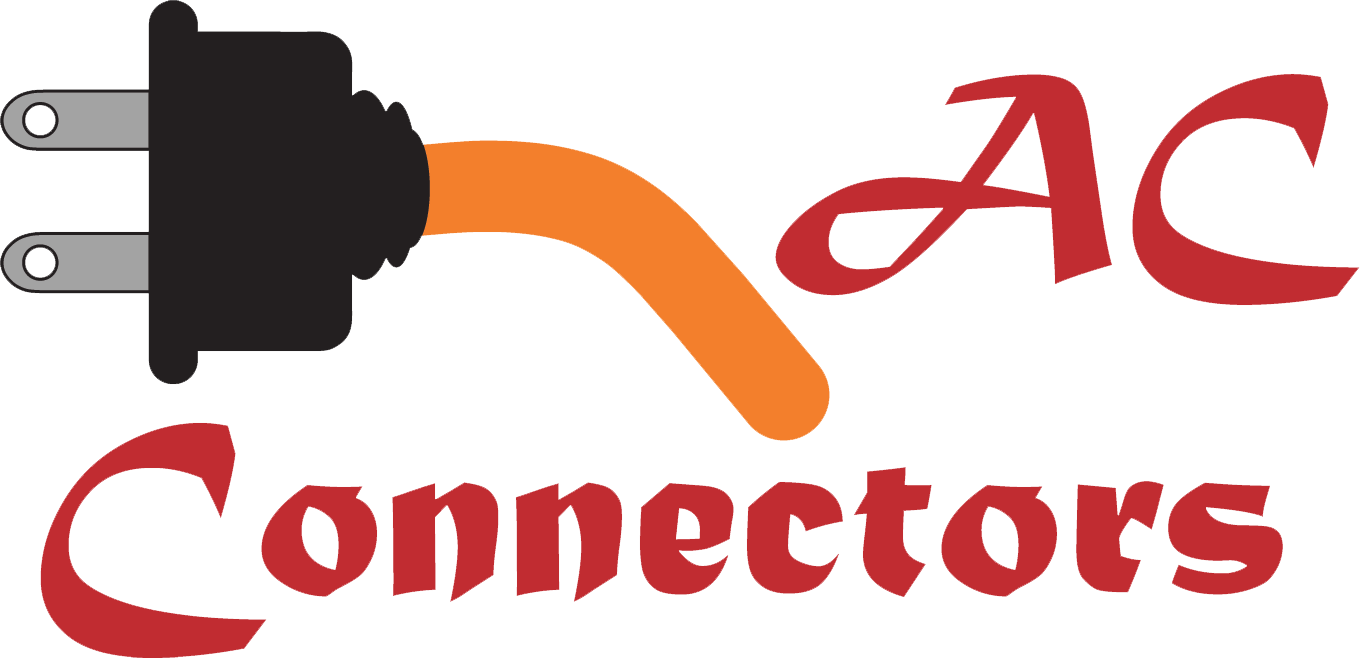
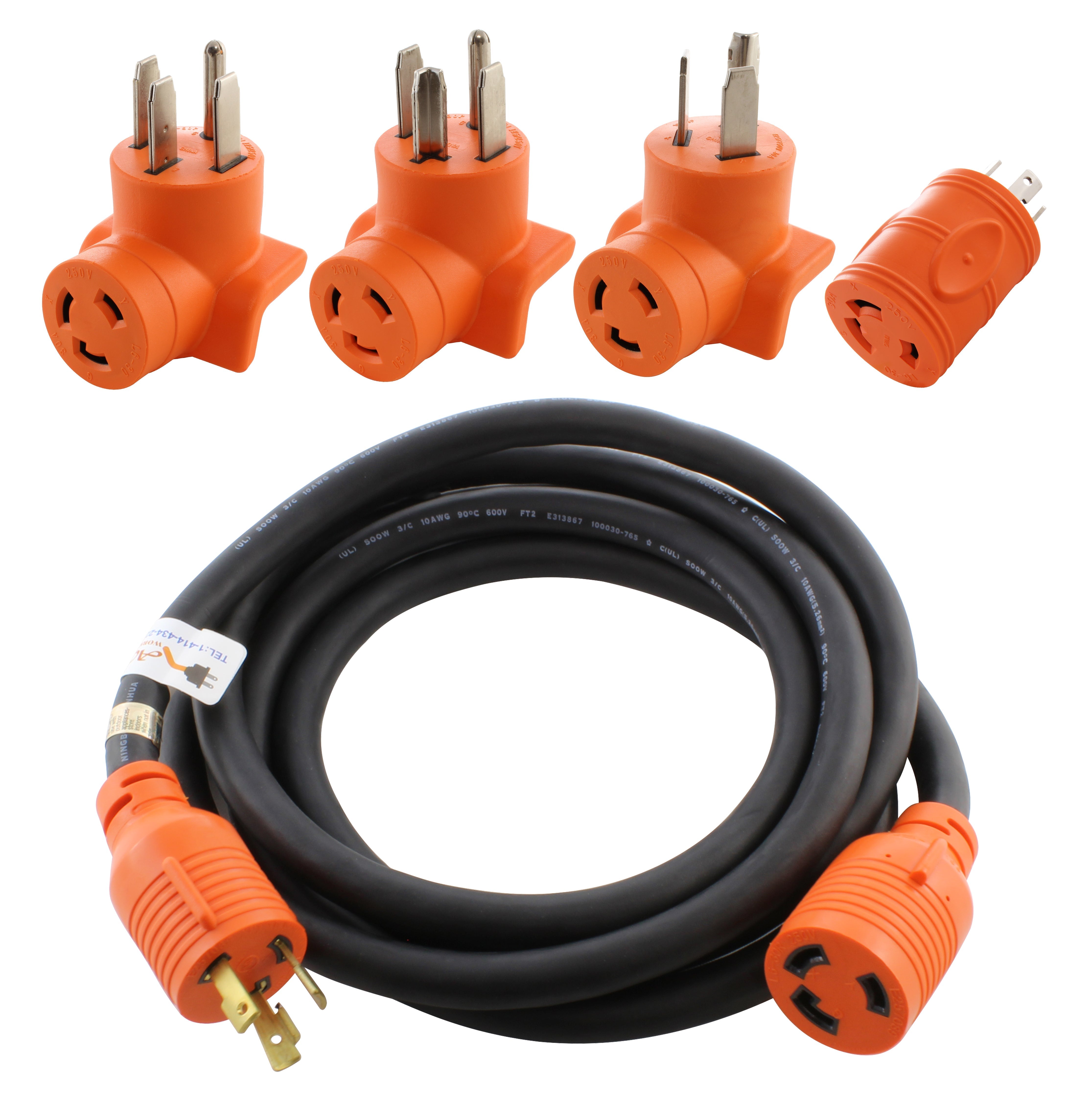
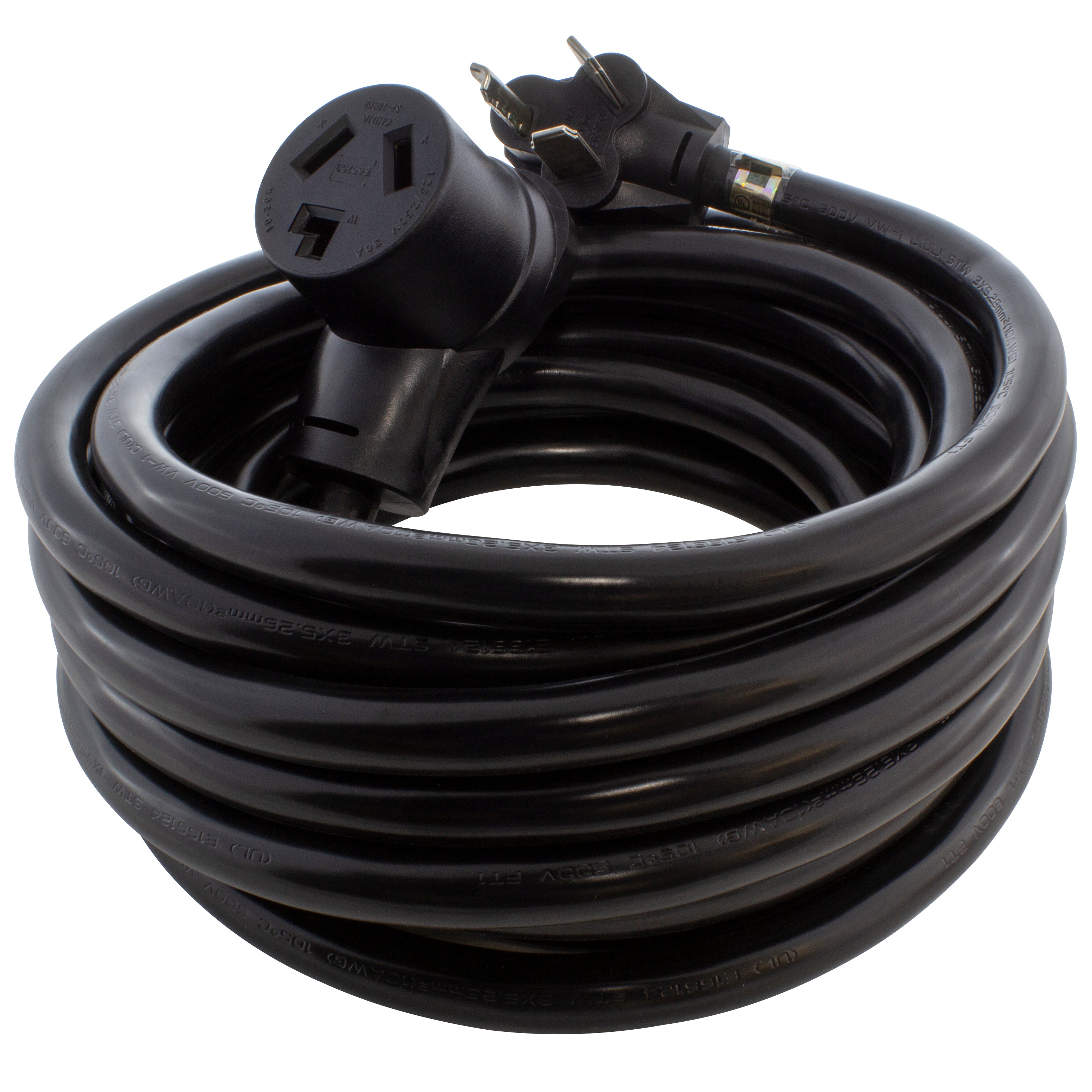
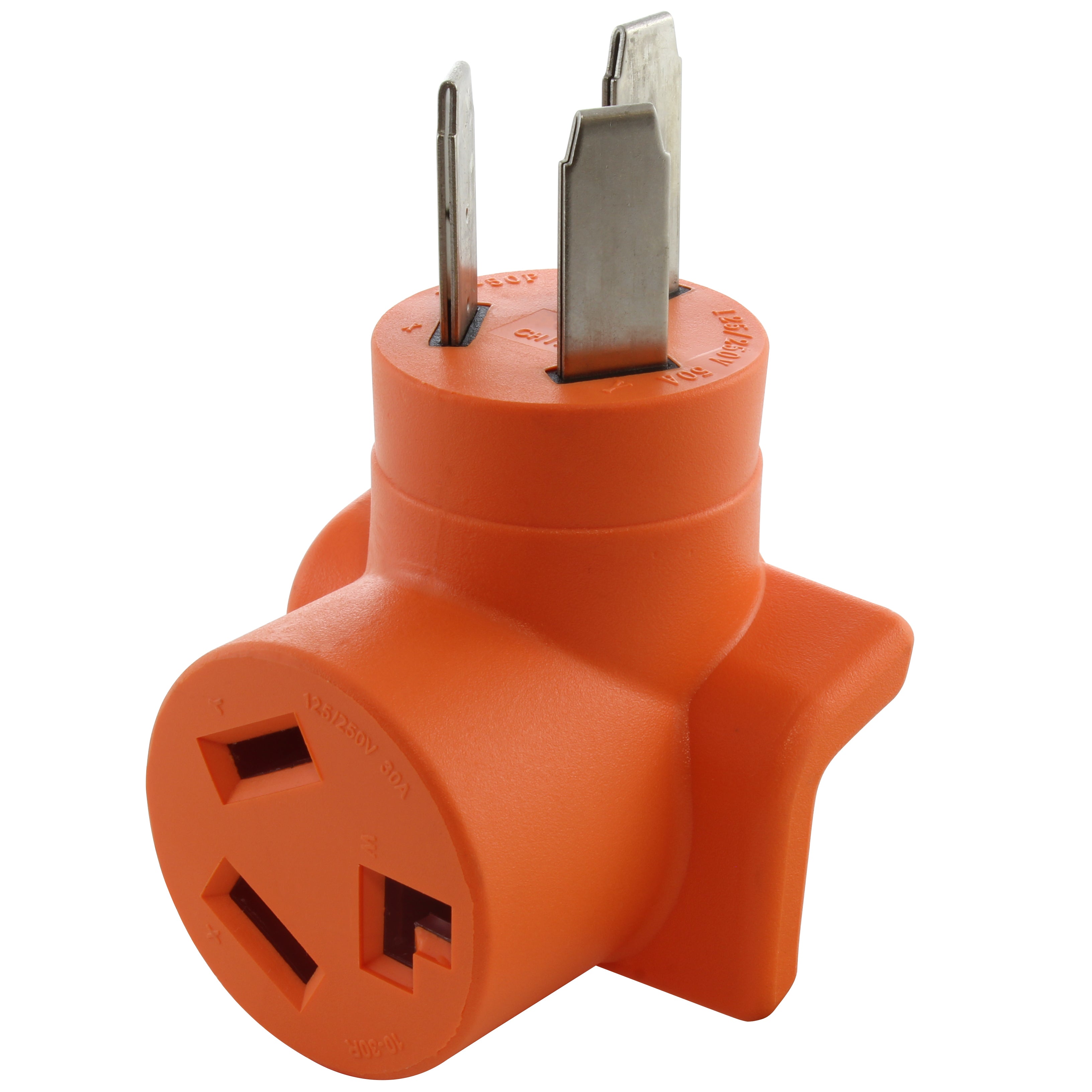
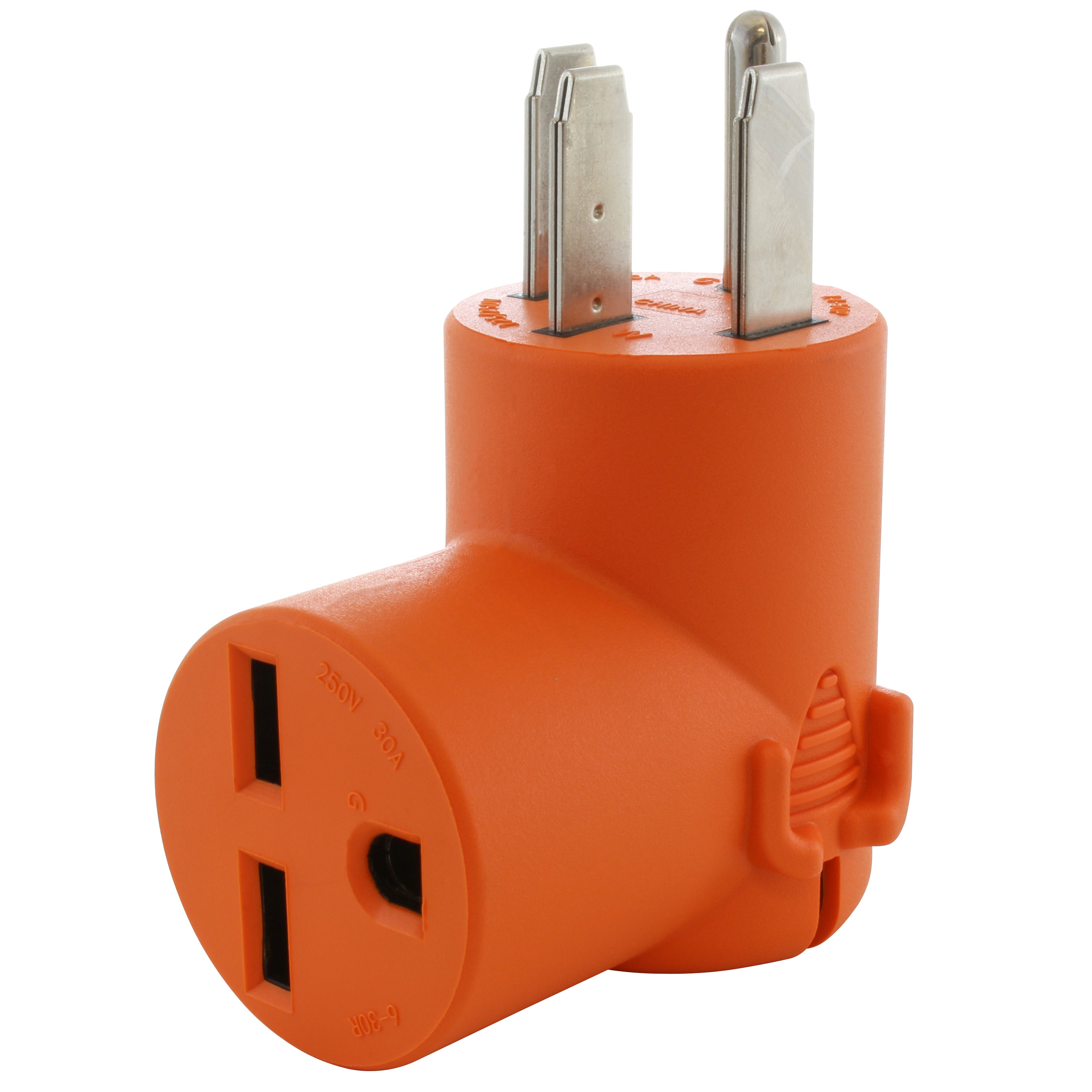
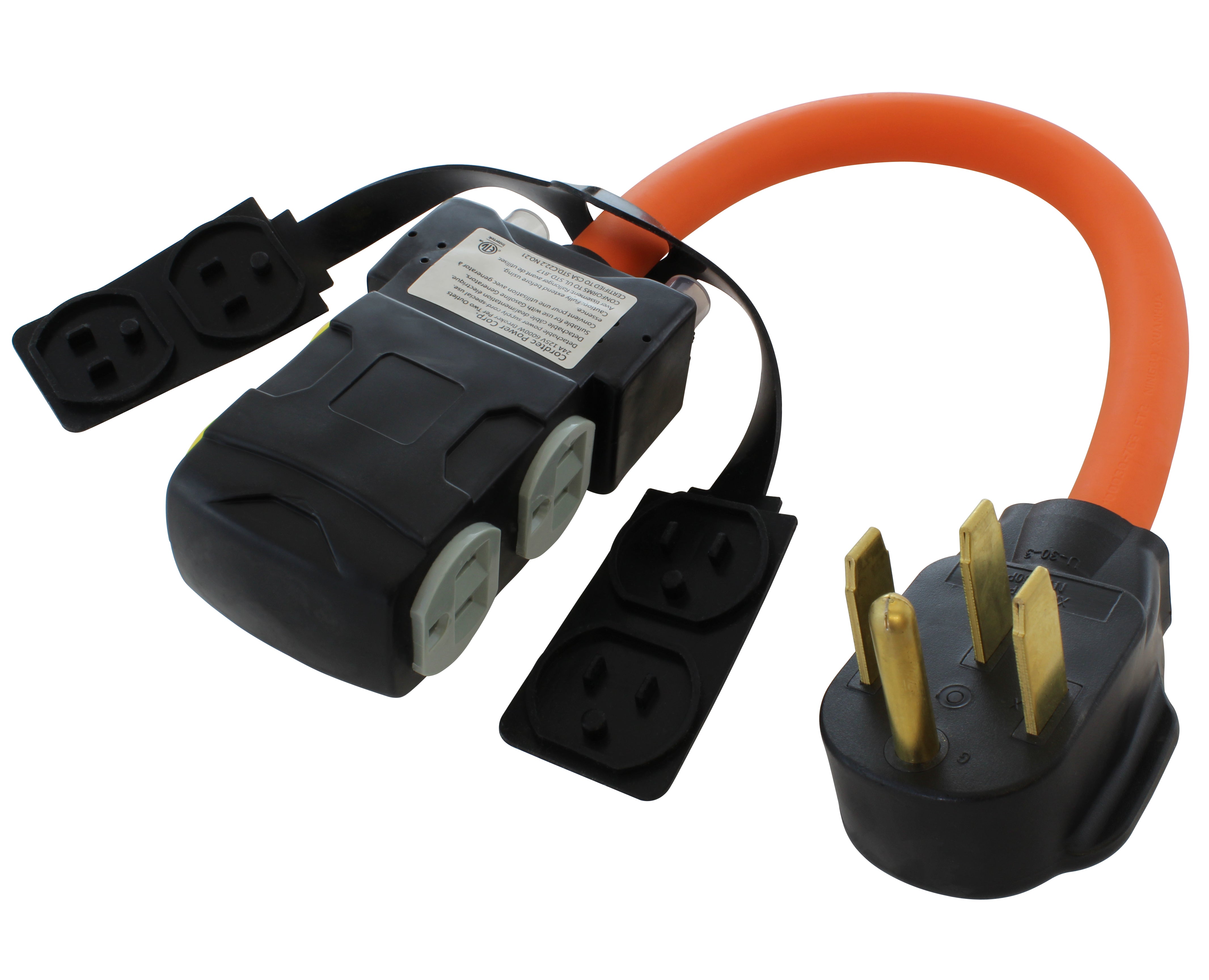
![AC WORKS® [ASINSS2PBX-G] 50A Locking 4-Wire CS6375/ SS2-50 Heavy-Duty Transfer Switch Inlet Box](http://acworks.com/cdn/shop/files/ASINSS2PBX-0_0206b362-7c90-42a5-8754-0685c13dab7e.jpg?v=1758051675&width=2500)
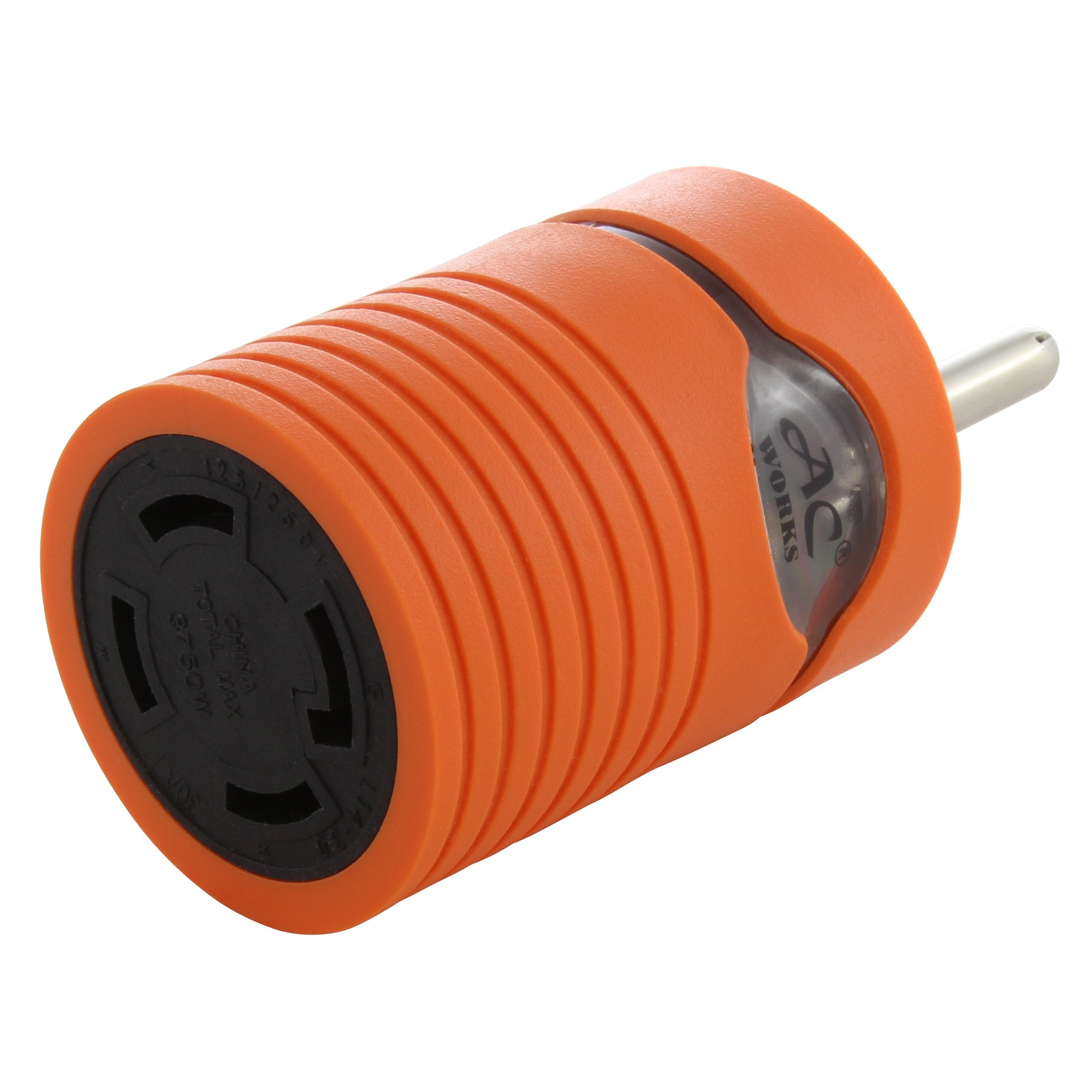
![AC WORKS® [S1430CBF520] 1.5FT 14-30P 4-Prong Dryer Plug to (4) Household Outlets with 24A Breaker](http://acworks.com/cdn/shop/products/S1430CBF520.jpg?v=1666103519&width=4656)
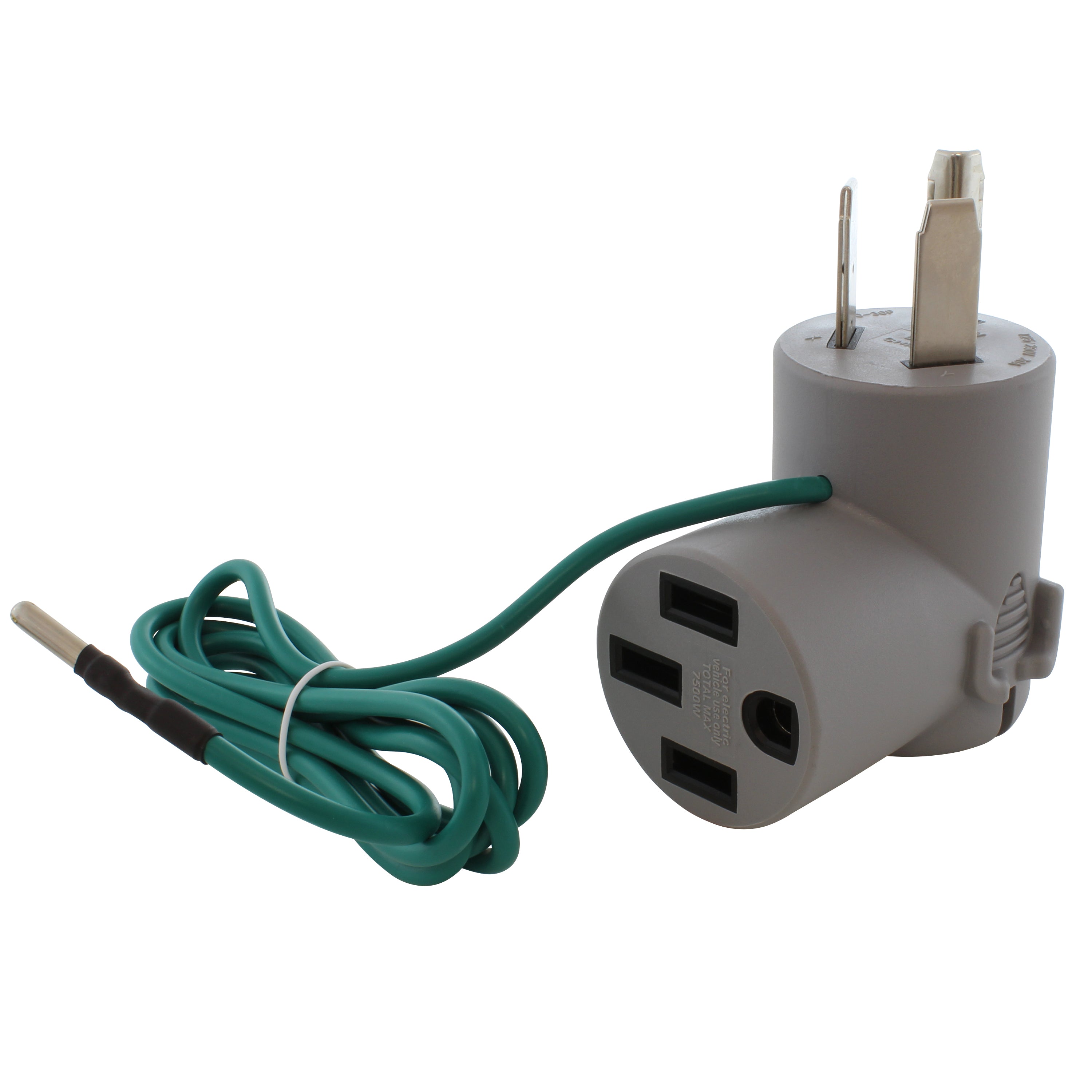
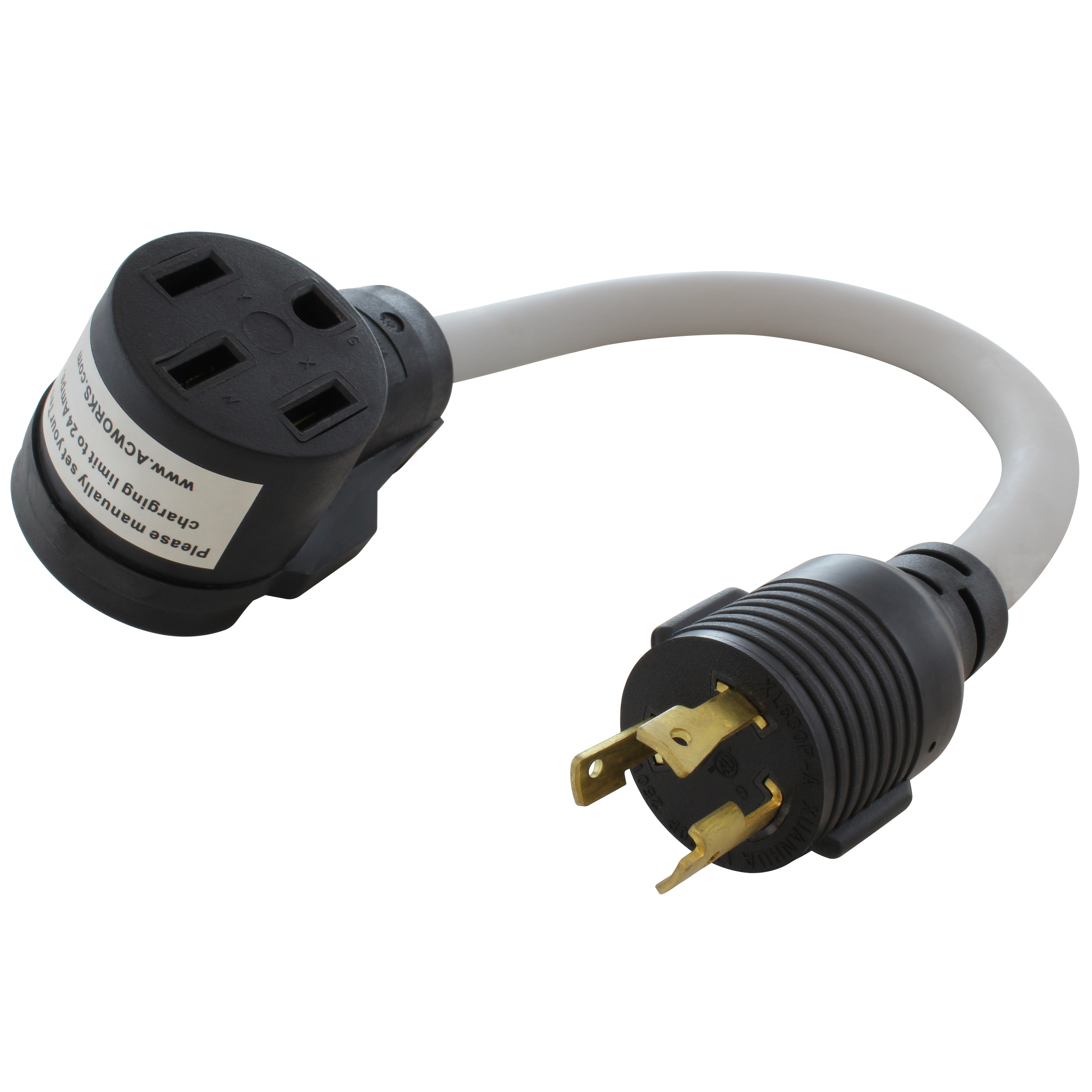
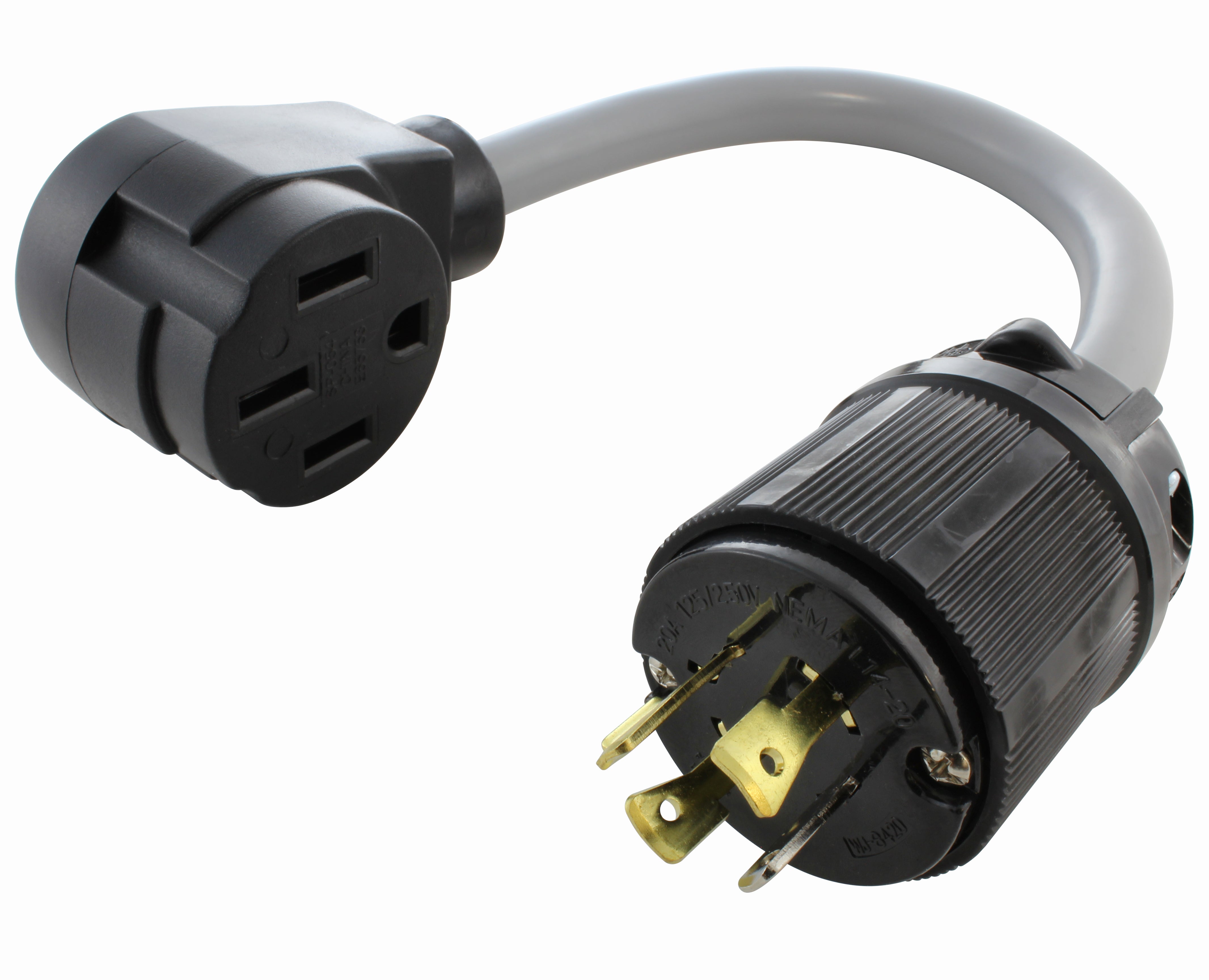
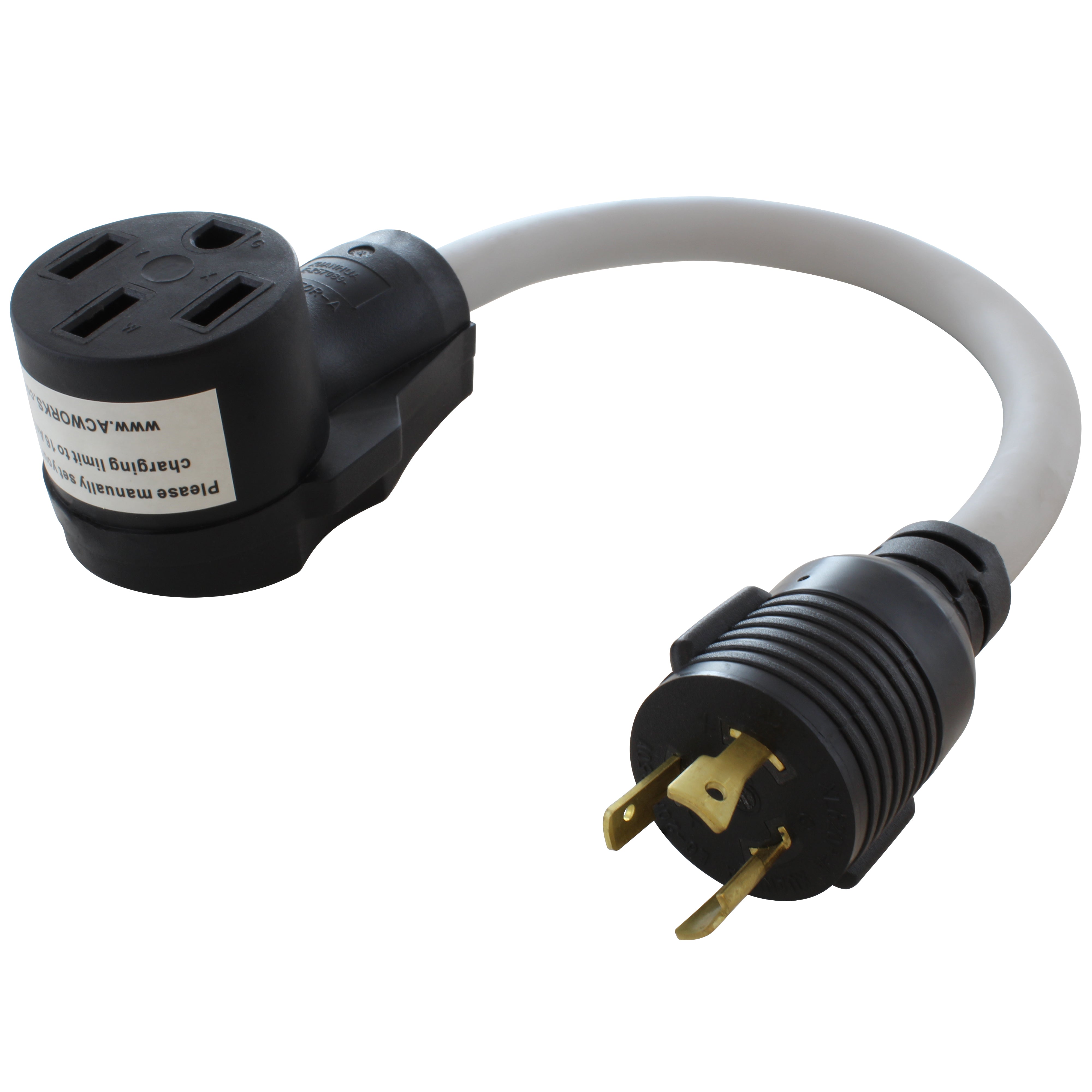
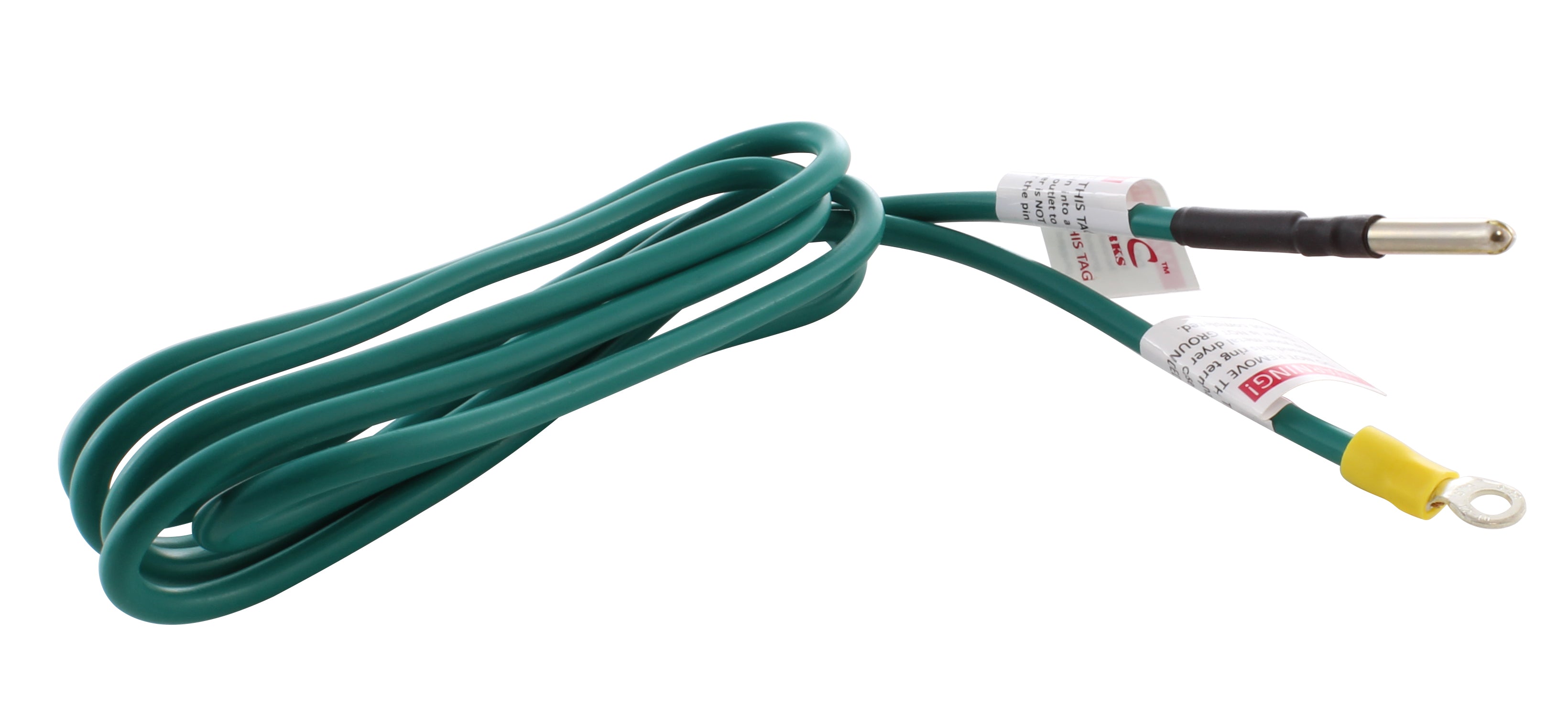
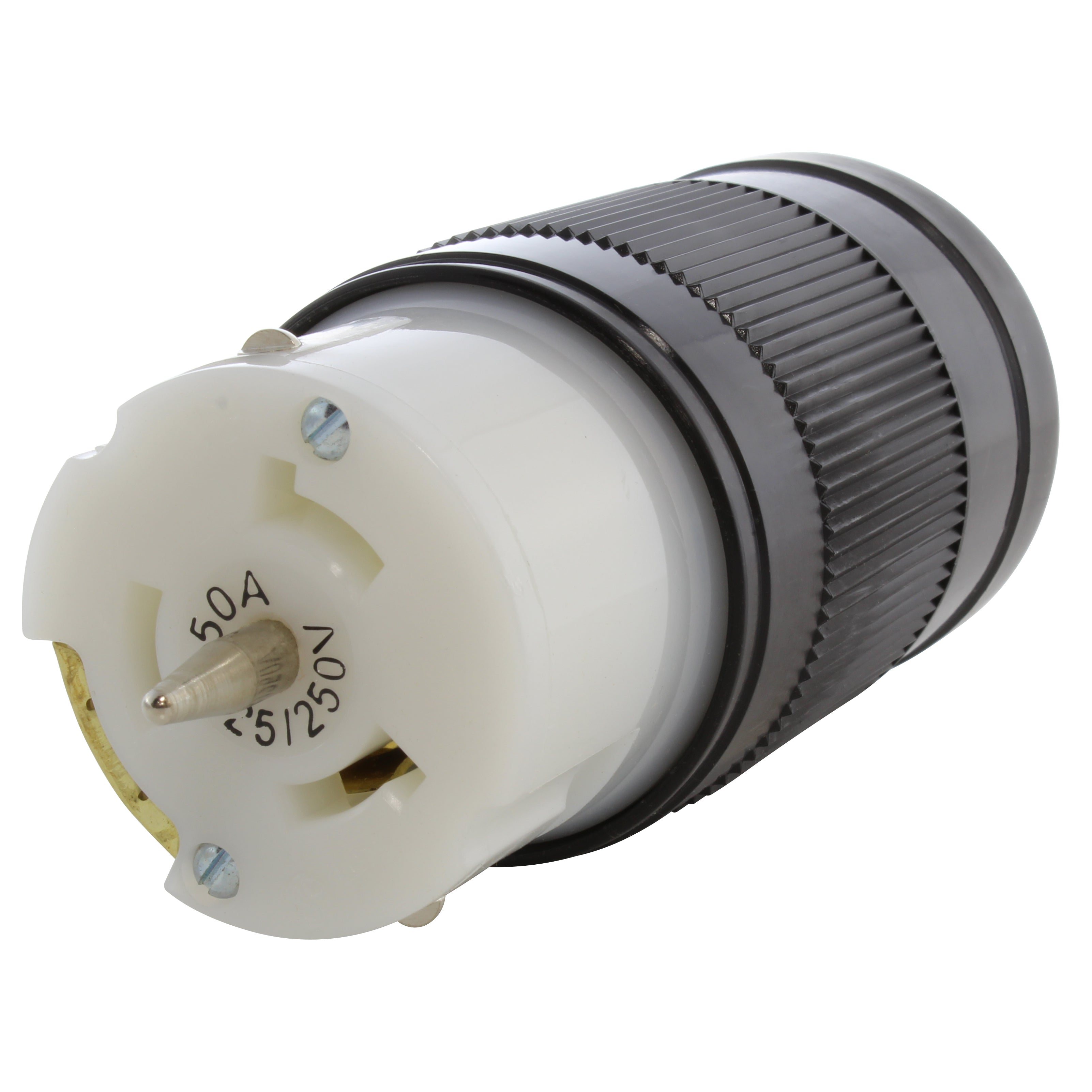
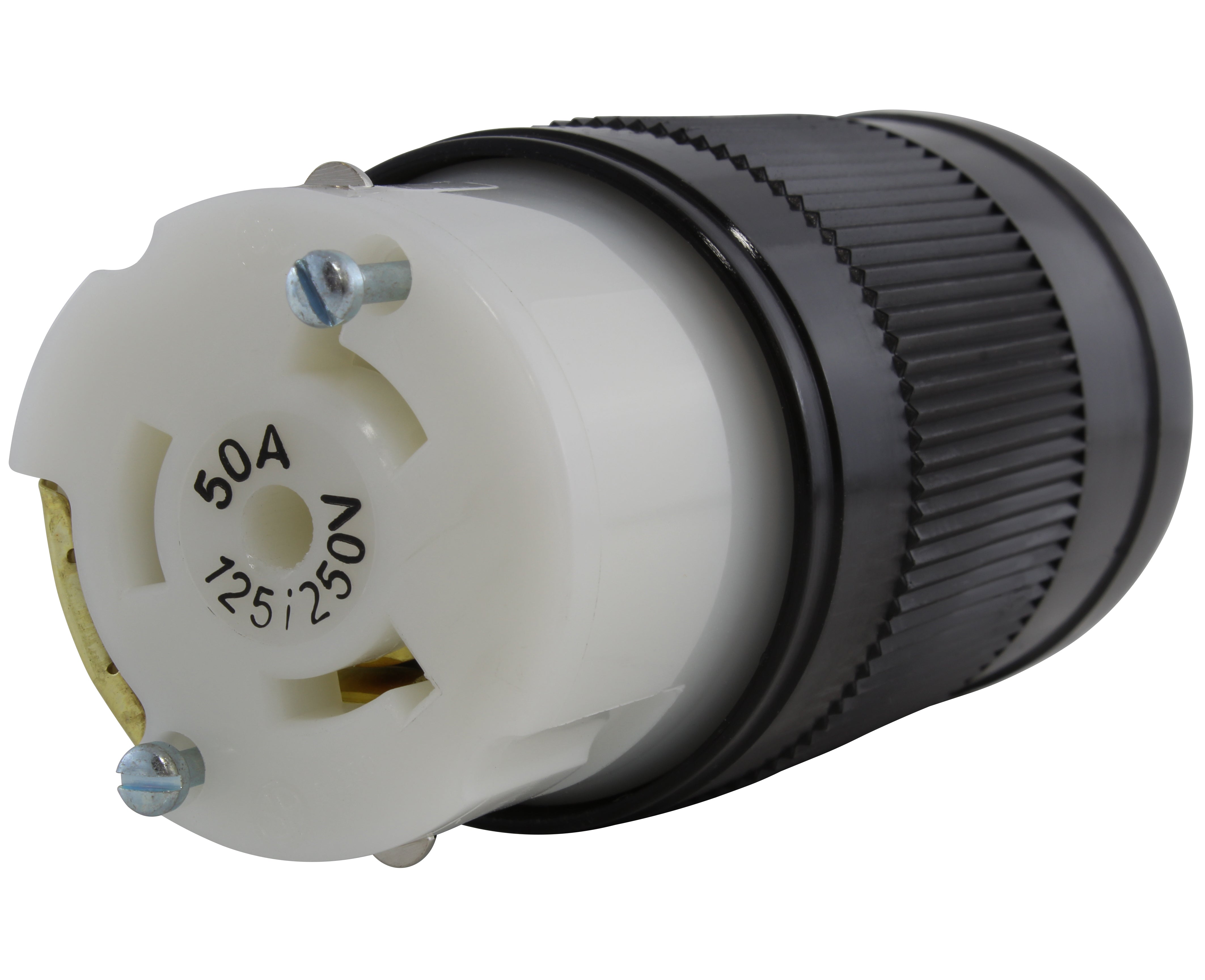
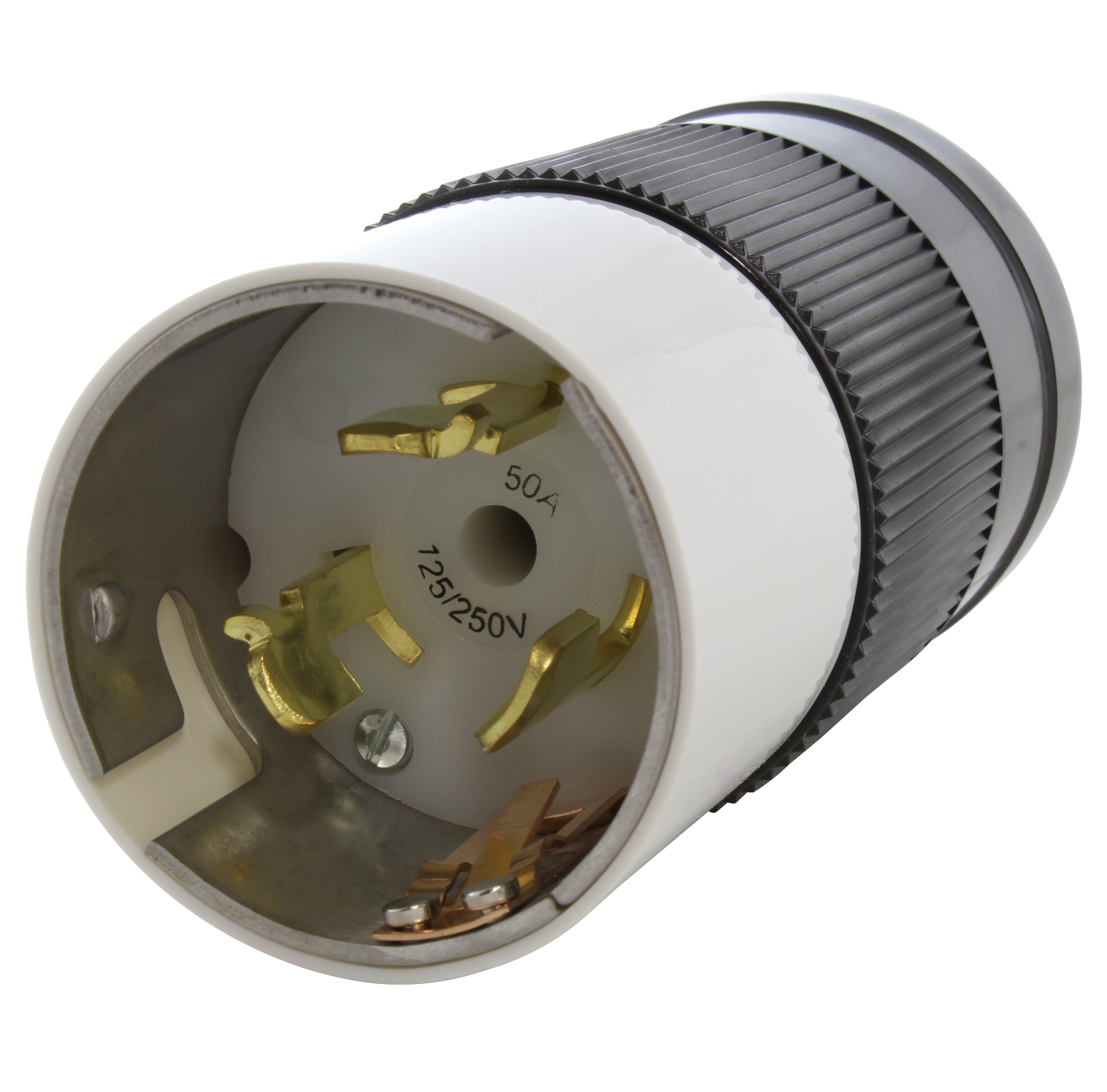
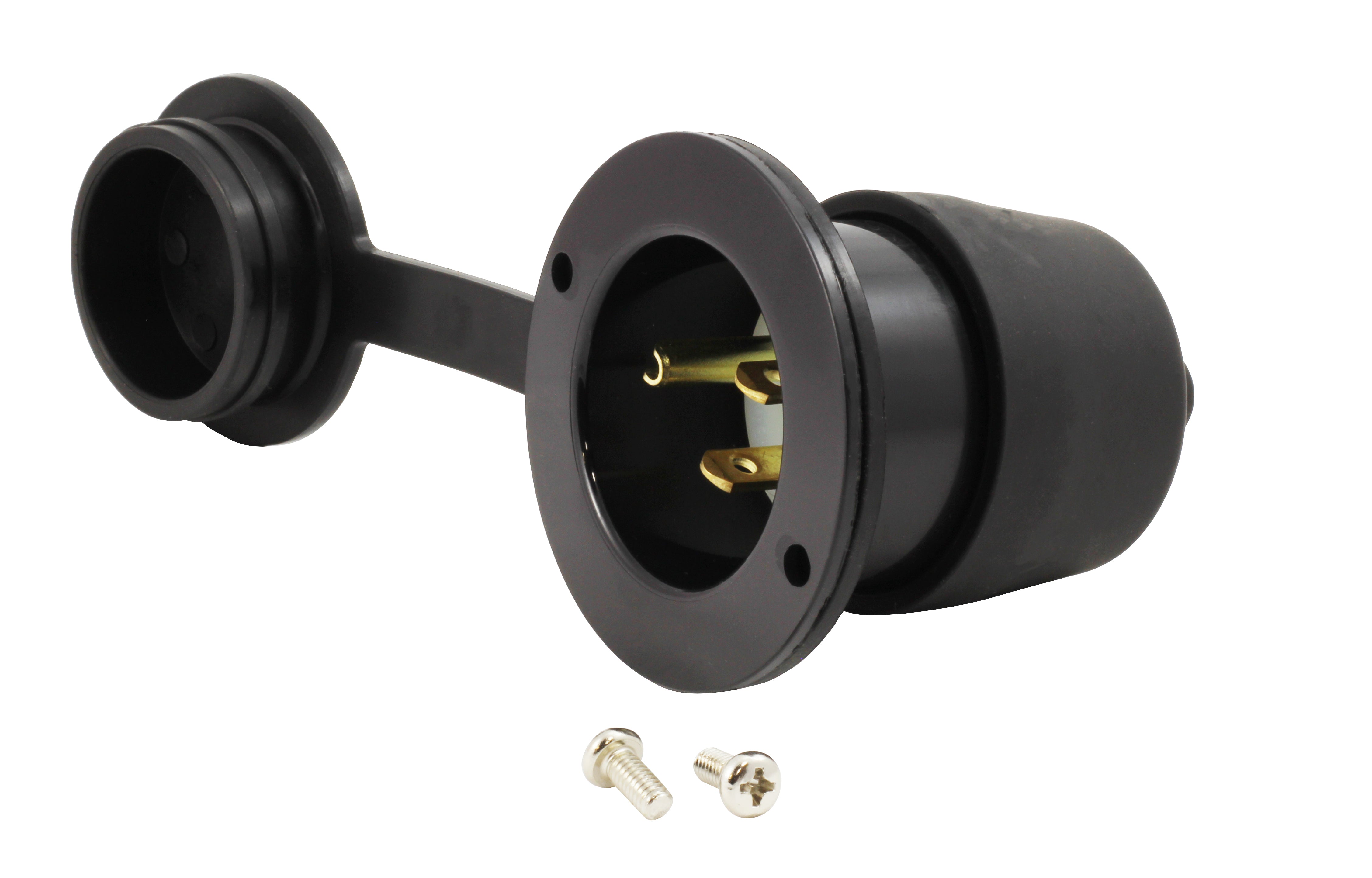
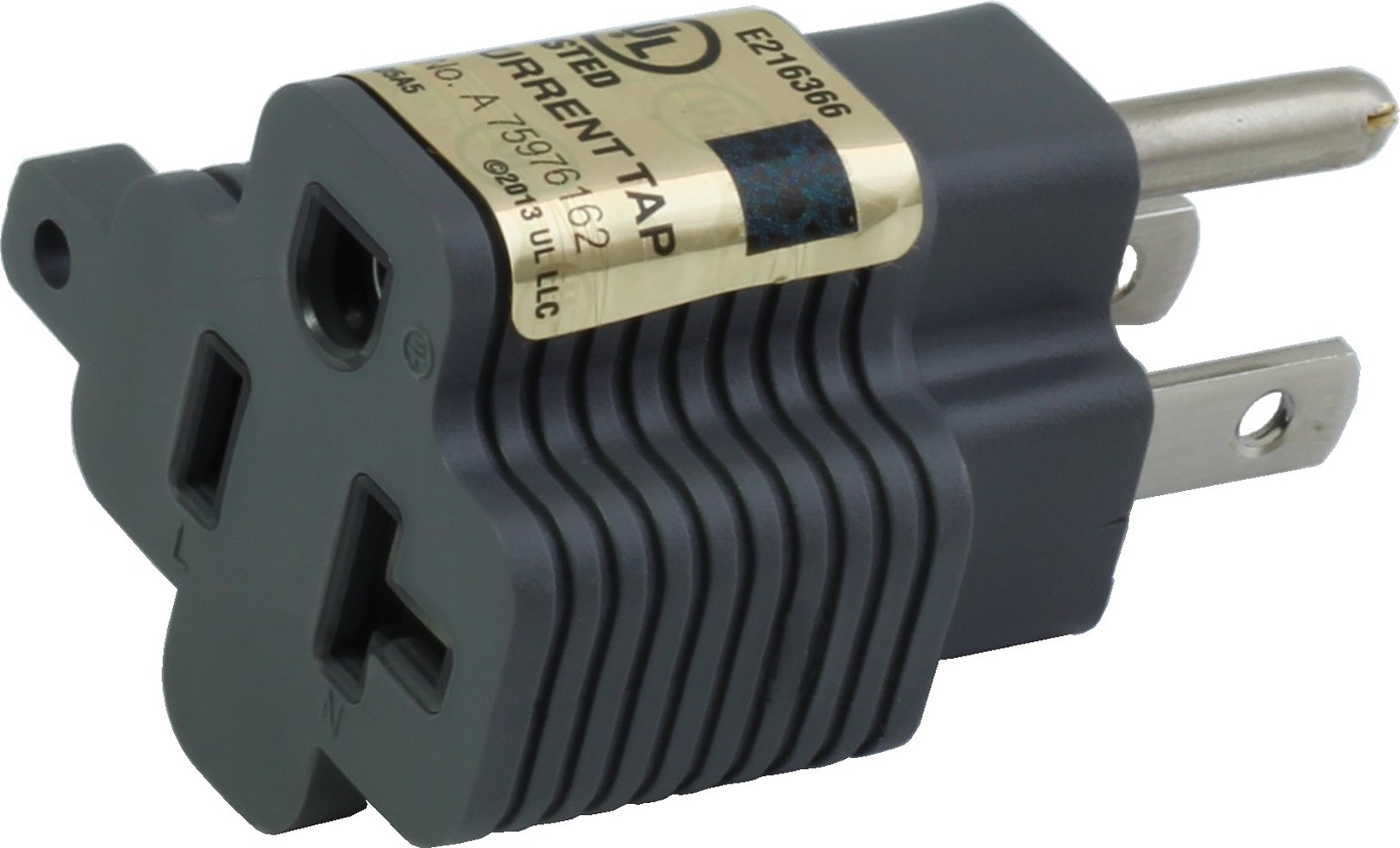
![AC WORKS® [ADV104] 3-Prong Heavy-Duty V-DUO Household Outlet Adapter](http://acworks.com/cdn/shop/products/ADV104-0.jpg?v=1605738768&width=3128)
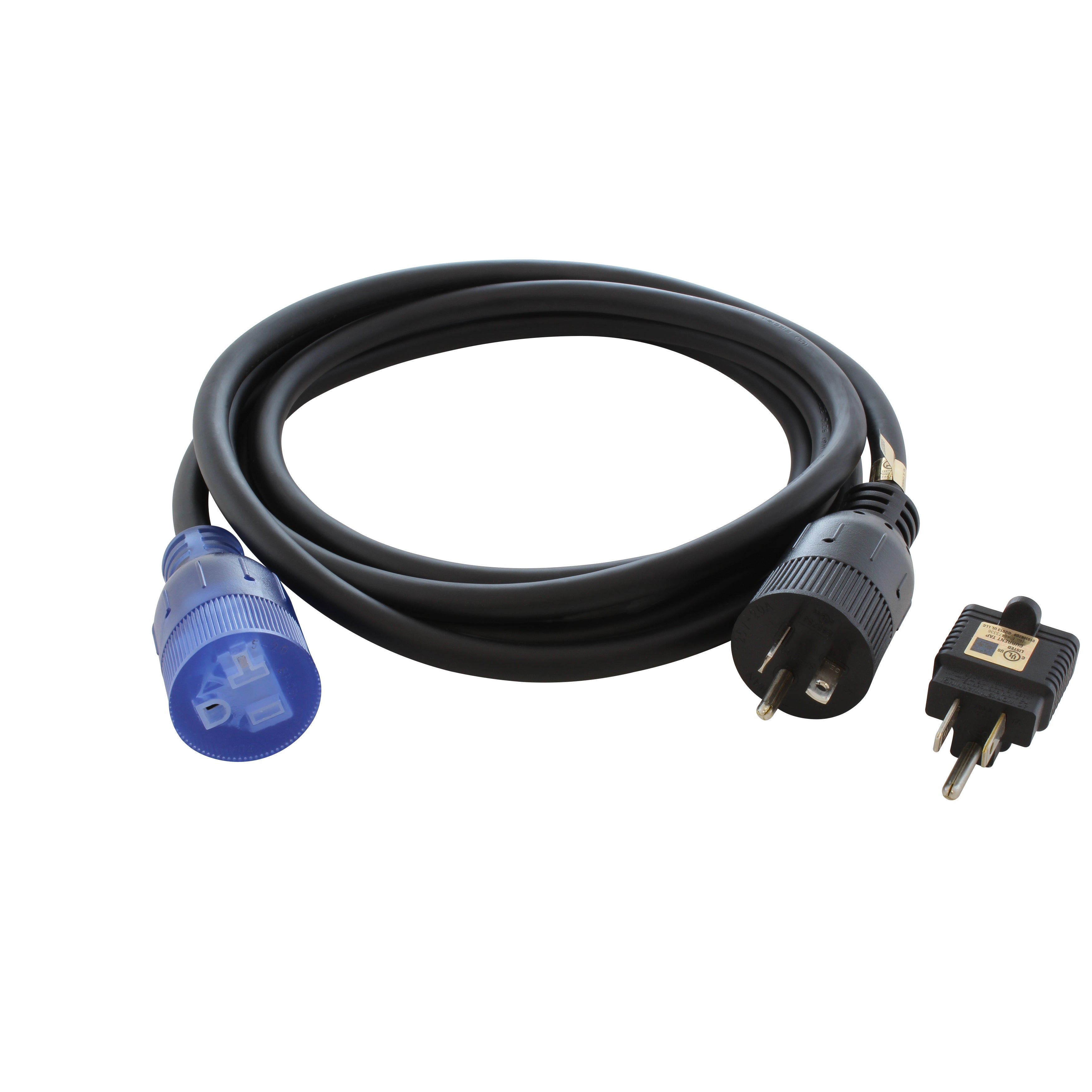
![AC WORKS® [XH515520] 15A to 15/20A 125 Volt Plug Adapter with ETL Safety Approval](http://acworks.com/cdn/shop/files/XH515520-0_daea425a-f439-48df-bb75-052167057f12.jpg?v=1729091519&width=2500)
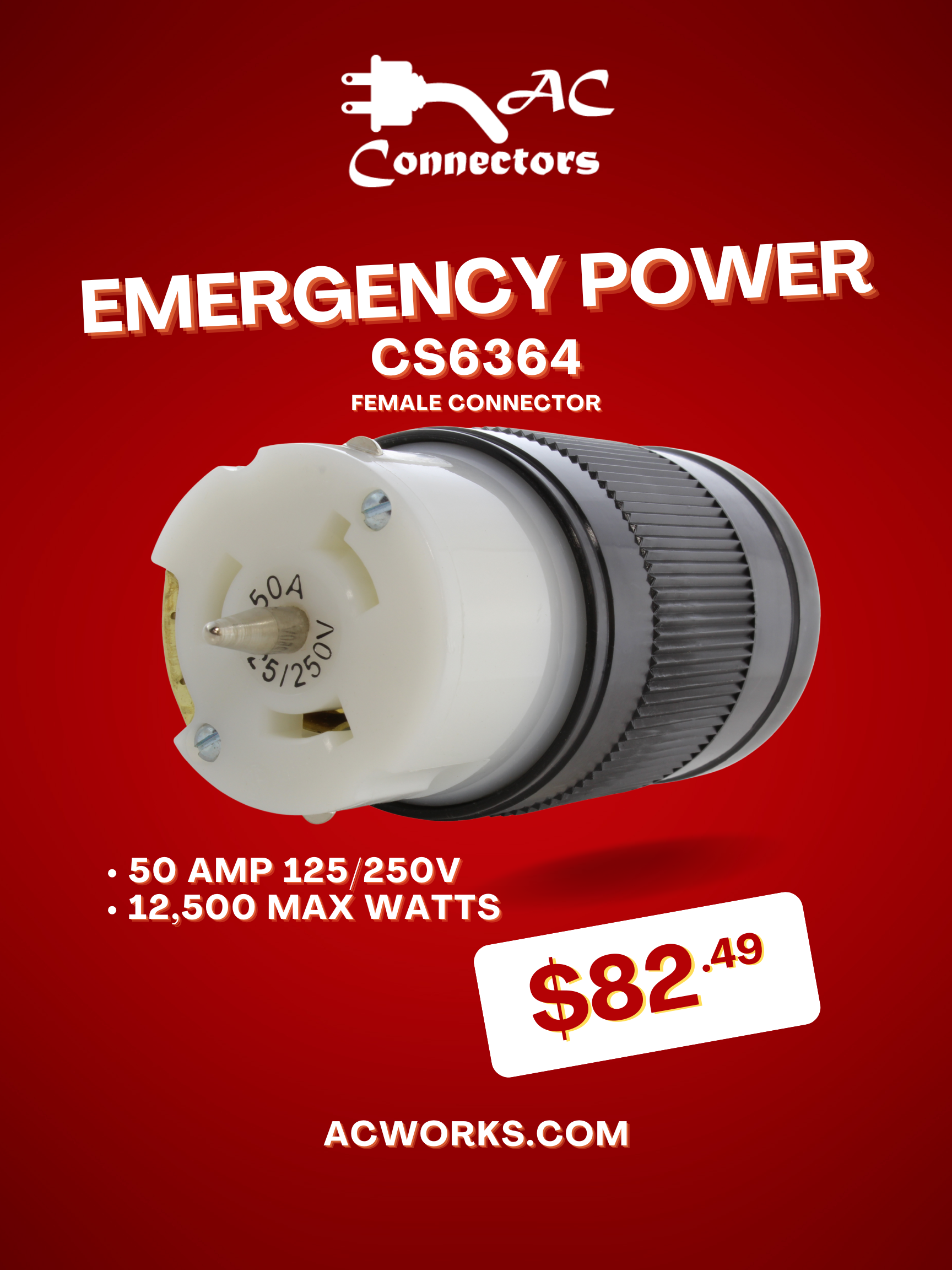
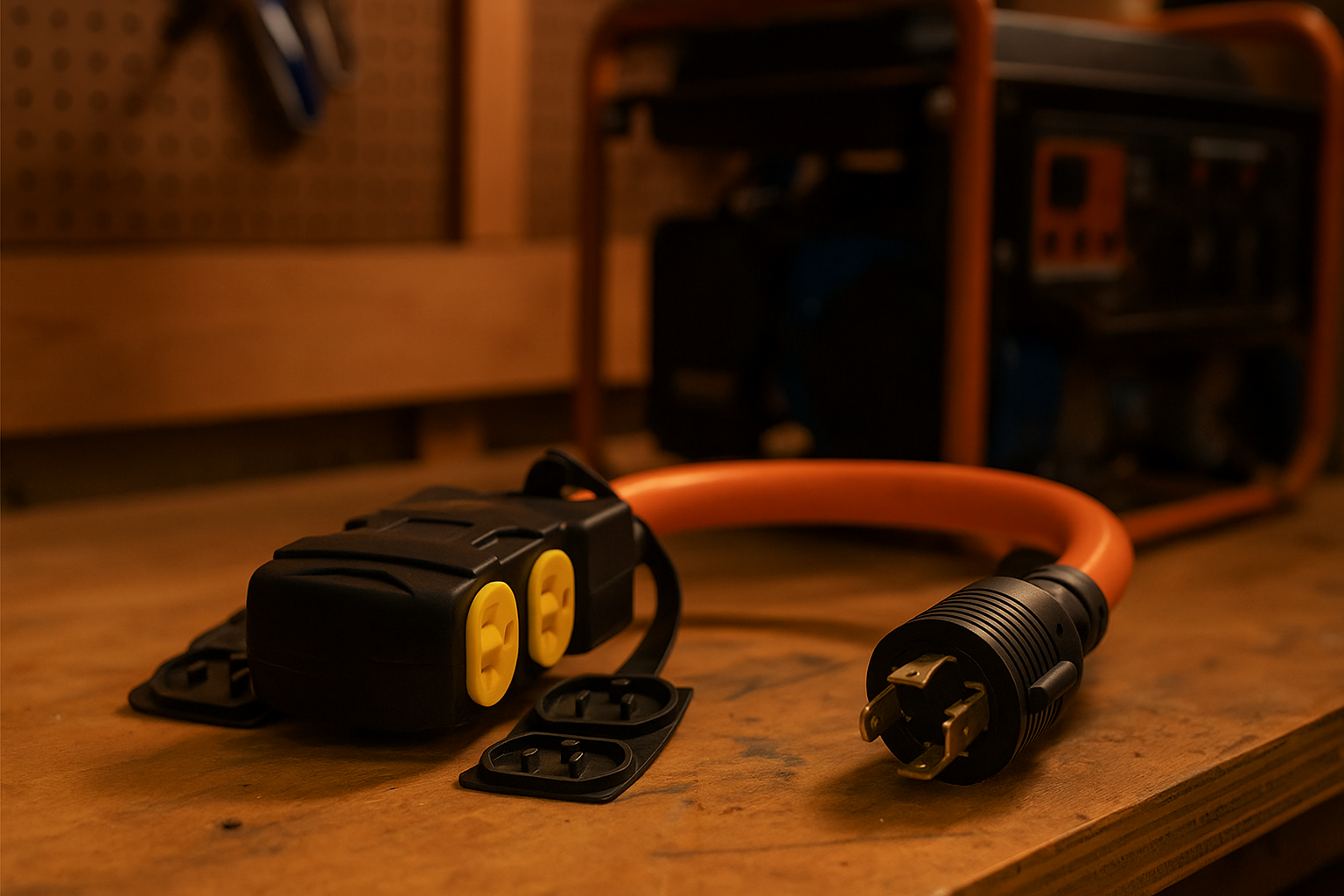
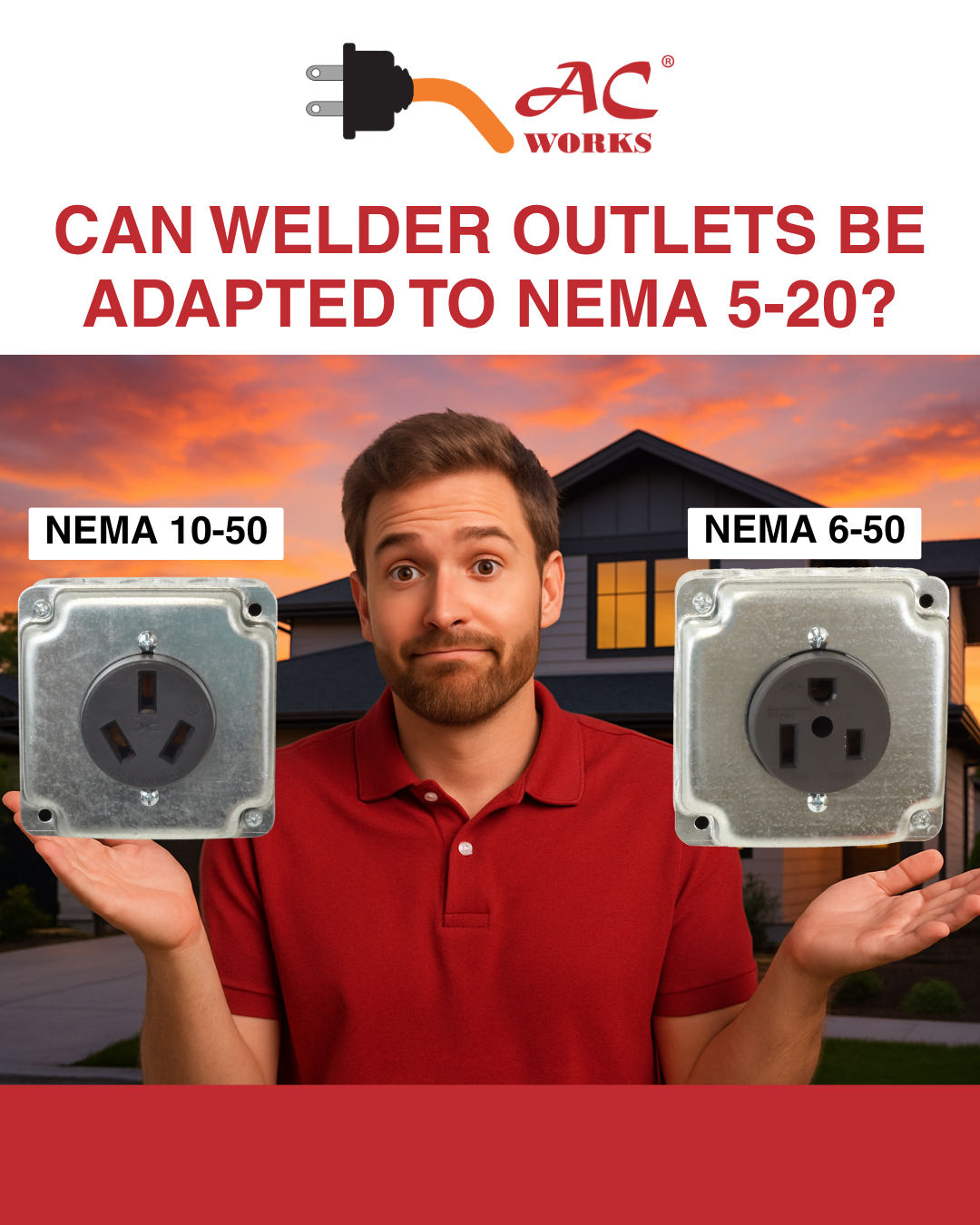
Share:
The Best Power Solutions for Data Centers
Why Thicker Extension Cords Can Be a Lifesaver — Even When You Don’t Think You Need One